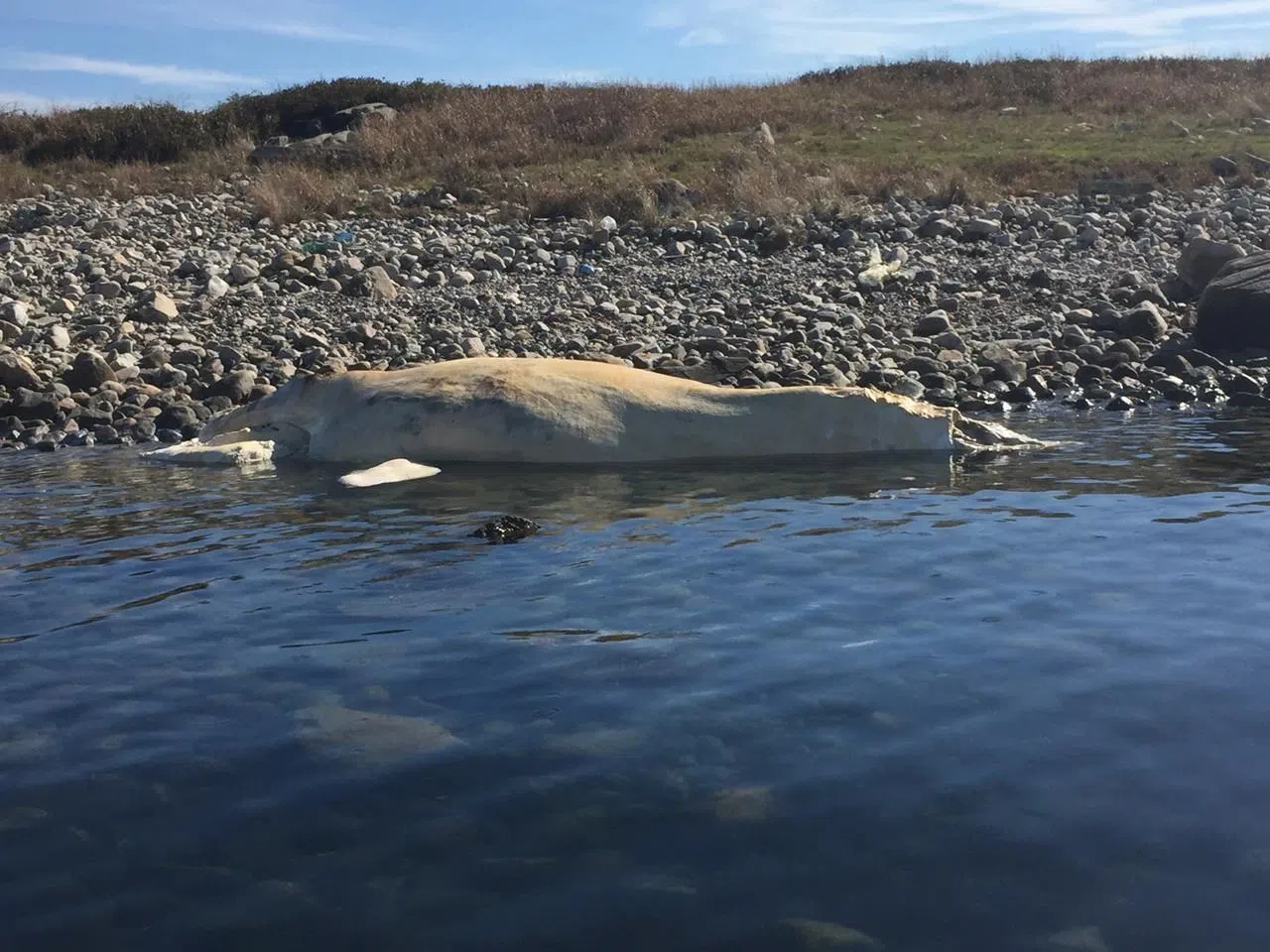
Another North Atlantic right whale found dead off coast of Massachusetts
Yet another North Atlantic right whale carcass has been discovered, the sixteenth confirmed death of the endangered species this year.
The International Fund for Animal Welfare said Tuesday the carcass was found on Nashawena Island, south of Cape Cod in Massachusetts.
“It appears to be a younger animal … so the likelihood of it being a natural or normal death is not high,” said Misty Niemeyer, a whale biologist with the fund.
The group said there have been 16 confirmed North Atlantic right whale deaths this year off the coasts of Canada and the U.S., most of those in the Gulf of Saint Lawrence.
